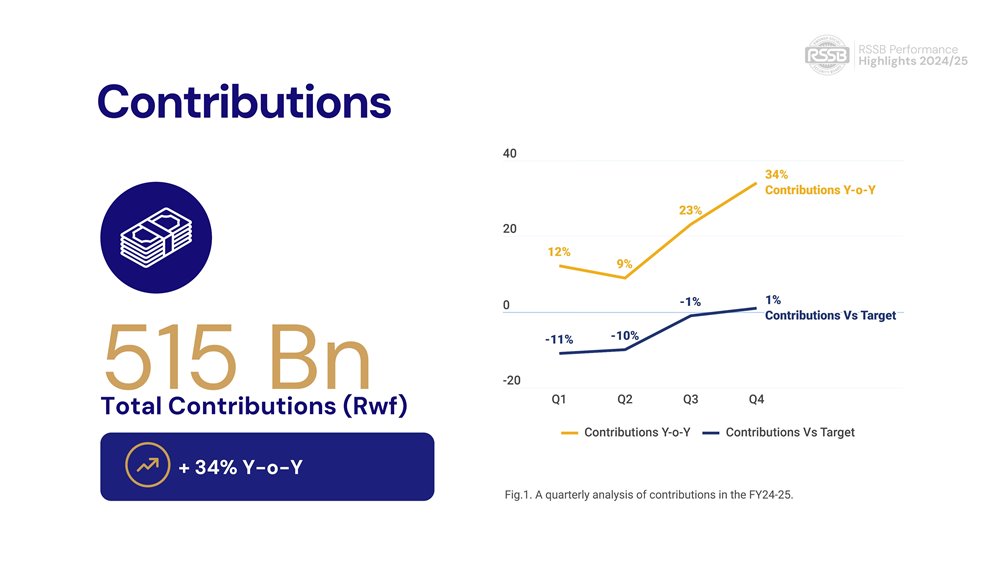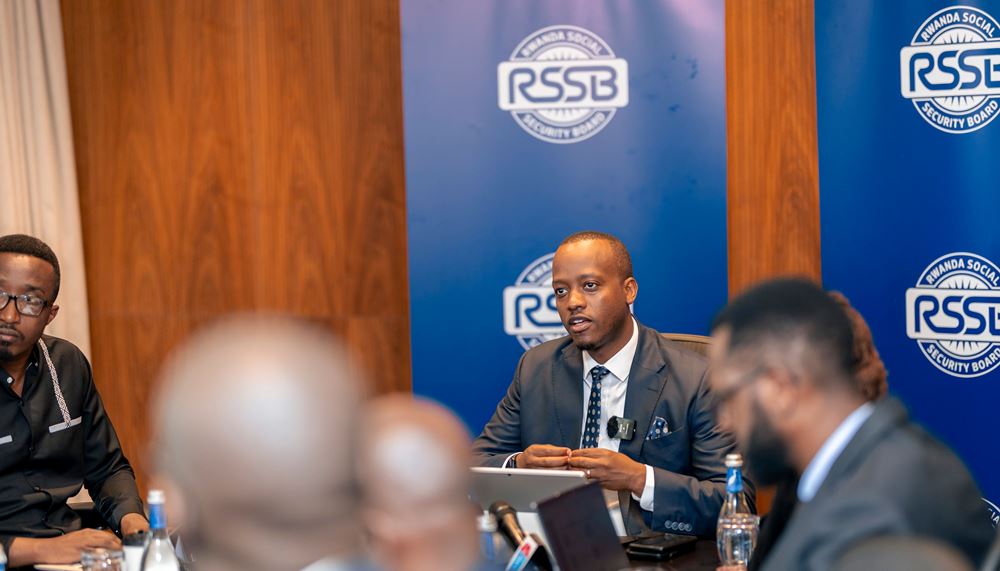Kigali – The Rwanda Social Security Board (RSSB) has reported a strong performance in the 2024/25 financial year, with contributions climbing to Rwf 515 billion, representing a 34% year-on-year increase.
The performance reflects improved compliance, expanded coverage, and stronger efficiency in the collection of mandatory social security contributions.
The data, published in the institution’s latest performance highlights, show a sharp rebound in contributions compared to the previous year. Quarterly analysis indicates that RSSB had a mixed start before gaining strong momentum.
Contributions grew by 12% in Q1 but slowed to 9% in Q2, raising concerns about whether targets would be met. However, the agency managed a significant turnaround in the second half of the year, posting 23% growth in Q3 and closing the year at an impressive 34% in Q4.

This recovery was equally reflected in the institution’s performance against targets. In the first two quarters, contributions were 11% and 10% below target, respectively, but by Q3 the gap had narrowed to just –1%.
By the final quarter, RSSB had turned the shortfall into a surplus, ending the year 1% above target.
The results highlight RSSB’s resilience and ability to adapt mid-year through corrective measures such as strengthening compliance enforcement, digitalizing contribution systems, and expanding coverage among employers and workers.
RSSB, one of Rwanda’s largest institutional investors, manages key social protection schemes including pensions, medical insurance, and occupational hazard programs. Its growing financial base also allows it to invest heavily in equities, real estate, and infrastructure projects, making it a major player in Rwanda’s investment landscape.
Analysts say the surge in contributions is timely, given the country’s rising demand for sustainable social protection and healthcare financing. “These figures show renewed confidence in the institution and provide more fiscal space to expand social safety nets,” Eugene Murangira, a Kigali-based economist told Rwanda Daily.
However, sustaining double-digit growth may prove challenging. A large portion of Rwanda’s workforce remains in the informal sector, where compliance and coverage gaps persist. Experts argue that future growth will depend on innovative policies to integrate informal workers, strengthen incentives for enrollment, and ensure transparent management of funds.
For now, the Rwf 515 billion milestone underscores both Rwanda’s economic resilience and RSSB’s pivotal role in financing social protection. As the government pushes forward with its long-term development blueprint, RSSB’s ability to sustain growth will be critical in securing pensions, healthcare, and welfare for millions of Rwandans.
